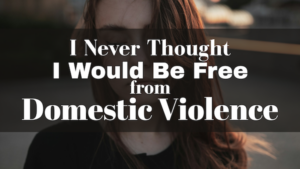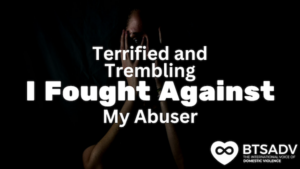By Representative Sharice Davids
The coronavirus pandemic upended many of our daily routines, ground our economy to a halt, and pushed millions of Americans into lockdown as we sought to slow the spread of the deadly virus. Only now are we beginning to fully see some of the effects of last year’s necessary emergency measures—including the sickening rise in domestic and intimate partner violence.
Emerging data shows an increase in calls to domestic violence helplines, and many on the front lines of domestic violence support services have been sounding the alarm. Risk for intimate partner violence appears to be heightened as space in shelters became scarcer due to social distancing measures, folks were asked to stay home, and services became harder to access, leaving many at risk with nowhere to turn.
Even before the onset of the COVID-19 pandemic, 1 in 3 women experienced physical or sexual violence in their lives. In my home state of Kansas in 2017, the number of domestic violence-related homicides doubled from the previous year, the biggest increase we’ve seen in the last two decades. And for some communities, the risk is greater due to a number of social, cultural, and economic factors. Particularly close to my heart is the crisis of missing and murdered Indigenous women.
Native women are ten times more likely to be victims of sexual violence than any other group of women in this country. Many people call this the “silent crisis” due to the lack of attention on the issue. When I was elected to U.S. Congress in 2018 as one of the first two Native American women to serve in the House of Representatives, I made it a priority to call out the “silent crisis” and seek solutions.
In 2019, I was honored to preside over the House floor as we passed a robust, bipartisan and long-term reauthorization of VAWA. We updated the law to reflect what we’ve learned since its original passage, including lifesaving provisions to improve the services and programs available to survivors, help stop convicted abusers from obtaining firearms, and strengthen the health care system’s response to these issues.
I also co-sponsored multiple amendments to the VAWA reauthorization bill that reaffirm special Tribal criminal jurisdiction and address the crisis of violence against Native women and girls. Often, folks who live on Tribal lands face additional barriers to seeking help and support when they are in an abusive situation. That can include a lack of services or mistrust of the services that are available, and deep-rooted cultural barriers. The complicated jurisdictional maze in Indian Country also impacts public safety when first responders must determine if they have jurisdiction over an offender rather than providing safety and services to victims. That’s why I pushed for amendments that improve information sharing and intergovernmental coordination—because we can’t act on a silent crisis if we don’t hear their call and fully understand. Armed with that understanding, we can confidently craft solutions that reach women where they are with the services they need and trust.
These are all critical steps to help ensure that every survivor of violence and abuse can receive the support, protection, and justice they deserve. But especially as more details about the impact of the COVID-19 pandemic come to light, we have to stay vigilant about these issues. It’s even more critical to pass the VAWA Reauthorization in the Senate, after we passed it again through the U.S. House earlier this year.
We know these programs work. In the years since VAWA’s enactment, there has been a drastic shift in the way that communities and law enforcement respond to intimate partner violence, stalking, and sexual assault. It pioneered a new approach that brings together stakeholders to share information and better support victims from all angles. Now, we’ve even further modernized that approach and included policies to unmask the silent crisis against Native women. As the anniversary of VAWA’s original passage approaches, I thank all those who have worked through the past year to support victims and those at risk, and I urge you to keep pushing to reauthorize the Violence Against Women Act. I know I will.
Sharice Davids represents Kansas’ 3rd District in the U.S. House of Representatives. In 2018, she became one of the first Native American women elected to Congress, and the first out LGBTQ+ Native American in Congress.









